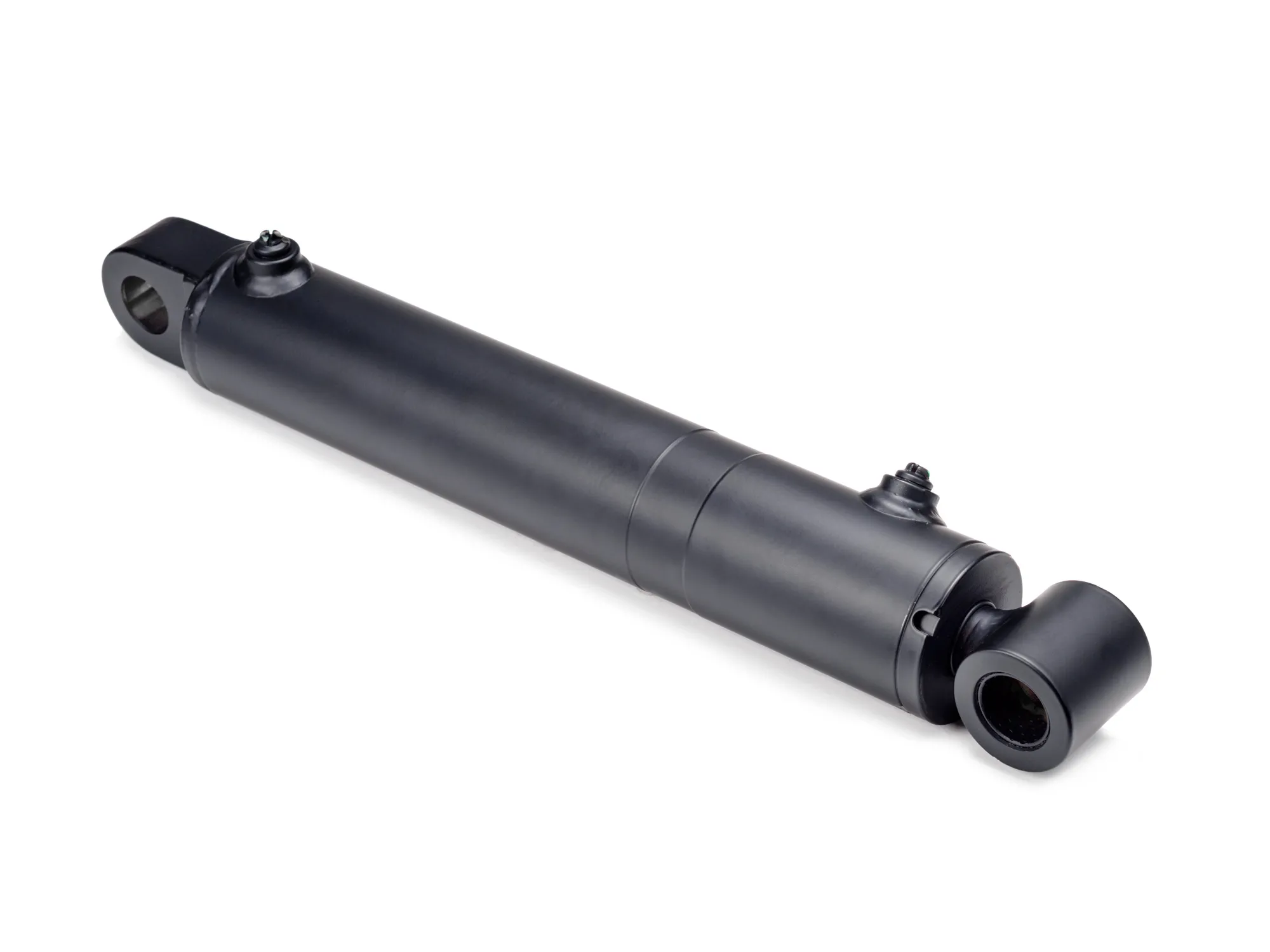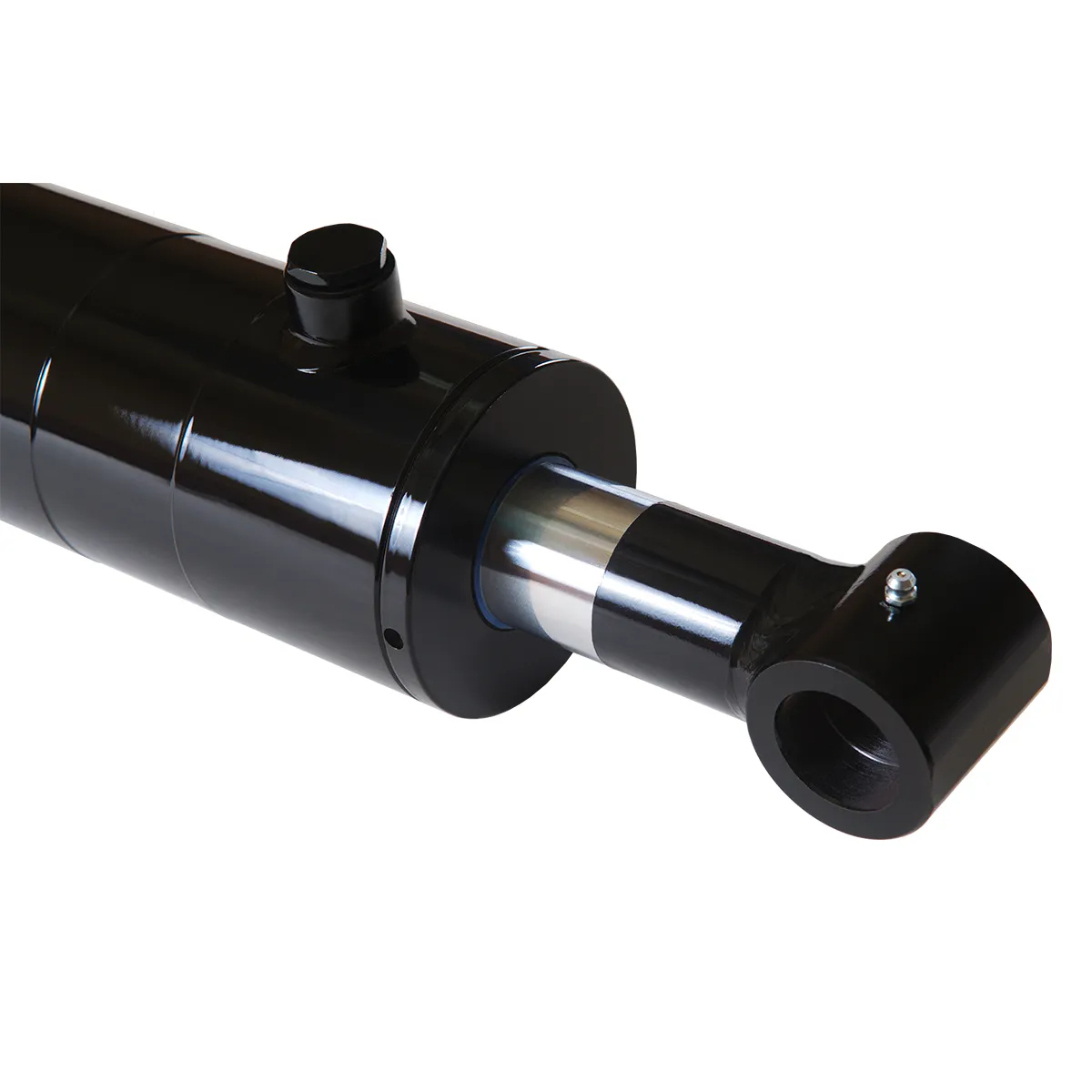The Role of Industrial Hydraulic Cylinder Applications In Assembly
Defining Industrial Hydraulic Cylinders
Industrial hydraulic cylinders are essential components in various industrial applications, providing linear force and motion through the use of hydraulic fluid. These cylinders are used to power machinery and equipment in assembly lines, manufacturing plants, construction sites, and other industrial settings.
Key Components and Structure
Hydraulic cylinders consist of a barrel, piston, rod, and seals. The barrel houses the piston, which moves back and forth to generate force. The rod connects the piston to the machine being powered, while seals prevent leakage of hydraulic fluid.
Principle of Operation
Hydraulic cylinders operate based on Pascal’s law, which states that pressure applied to a confined fluid is transmitted equally in all directions. When hydraulic fluid is pumped into the cylinder, it pushes against the piston, generating linear motion to perform work.
Types of Hydraulic Cylinders
1. Single Acting
Single acting cylinders operate in one direction, using hydraulic pressure to extend the piston. They are commonly used in applications where a load needs to be lifted or pushed in a specific direction.
2. Double Acting
Double acting cylinders can extend and retract using hydraulic pressure on both sides of the piston. This type is versatile and is often used in more complex industrial tasks that require precise control over movement.
3. Telescopic
Telescopic cylinders consist of multiple nested stages that can extend and retract, allowing for a longer stroke length while maintaining a compact design. They are ideal for applications with limited space.
4. Differential
Differential cylinders have different piston diameters on each side, providing a mechanical advantage for heavy lifting or high force applications. They offer a balance between speed and force.
Advantages of Industrial Hydraulic Cylinders
1. High power density: Hydraulic cylinders can generate significant force in a compact space, making them ideal for heavy-duty applications.
2. Precise control: Hydraulic systems allow for precise control over speed and force, enabling smooth and efficient operation.
3. Durability: Hydraulic cylinders are built to withstand harsh industrial environments, ensuring long-term reliability and performance.
4. Versatility: Hydraulic cylinders can be customized to suit various applications, making them adaptable to different tasks.

5. Safety: Hydraulic systems can incorporate safety features such as overload protection and emergency stop mechanisms to prevent accidents.
Common Industries Using Hydraulic Cylinders
1. Manufacturing: Hydraulic cylinders are used in assembly lines, robotic machinery, and material handling equipment to streamline production processes.
2. Construction: Hydraulic cylinders power heavy equipment like cranes, excavators, and bulldozers for efficient construction operations.
3. Mining: Hydraulic cylinders are essential in mining equipment for drilling, crushing, and transporting materials in rugged mining environments.
4. Agriculture: Hydraulic cylinders are employed in agricultural machinery for tasks like plowing, planting, and harvesting crops with precision.
5. Automotive: Hydraulic cylinders are used in vehicle manufacturing for processes like stamping, welding, and assembly in automotive production lines.
Choosing the Right Hydraulic Cylinder
When selecting an industrial hydraulic cylinder, factors to consider include load capacity, stroke length, bore size, operating pressure, and mounting style. Matching the cylinder’s performance to the specific requirements of the application is crucial for optimal functionality.
Maintenance and Care
Regular maintenance of hydraulic cylinders is essential to ensure their longevity and performance. Inspection, lubrication, and cleaning are key practices to prevent wear and tear, leaks, and malfunctions that could disrupt operations.
Installation Guide
Proper installation of hydraulic cylinders involves aligning components, securing connections, and testing for leaks and functionality. Following manufacturer guidelines and safety precautions is critical to avoid accidents and ensure efficient operation.
Maintenance Tasks
Cleaning
Regularly clean hydraulic cylinders to remove dirt, debris, and contaminants that can cause damage or affect performance. Use recommended cleaning agents and techniques to maintain optimal functionality.

Lubrication
Apply appropriate lubricants to moving parts of hydraulic cylinders to reduce friction, wear, and corrosion. Proper lubrication extends the life of components and ensures smooth operation.
Checking Wear
Periodically inspect hydraulic cylinders for signs of wear, such as leaks, dents, or corrosion. Addressing wear issues promptly can prevent costly repairs and downtime in industrial operations.
Fault Diagnosis and Solutions
Common problems with hydraulic cylinders include leaks, inadequate pressure, and erratic movement. Troubleshooting tips include checking for loose connections, worn seals, or contaminated fluid, and solutions involve repairing or replacing faulty components.
Preventive Measures
To minimize potential problems with hydraulic cylinders, preventive measures like regular maintenance, proper installation, and operator training are essential. Implementing a preventive maintenance schedule can optimize performance and extend the service life of hydraulic systems.
Choosing the Right Industrial Hydraulic Cylinder
Factors to consider in selecting an industrial hydraulic cylinder include load requirements, speed, precision, environment, and maintenance needs. Matching the cylinder’s specifications to the application’s demands ensures efficient and reliable performance.
Long-Tail SEO Articles
1. “Enhancing Efficiency with Telescopic Hydraulic Cylinders”: Explore how telescopic cylinders improve productivity in industrial settings with their extended stroke capabilities and compact design.
2. “Maximizing Power with Double Acting Hydraulic Cylinders”: Discover the versatility of double acting cylinders in applications that require precise control over both extension and retraction movements.
3. “Optimizing Performance with Custom Hydraulic Cylinder Solutions”: Learn how customized hydraulic cylinders can address specific industrial requirements and enhance operational efficiency in various sectors.
Our Company
We are a leading hydraulic cylinder manufacturer and wholesale distributor, offering a complete product line for industrial applications. With professional expertise, international certifications, customized services, state-of-the-art production equipment, and dedicated after-sales support, we strive to deliver high-quality hydraulic solutions to our domestic and international clients.
